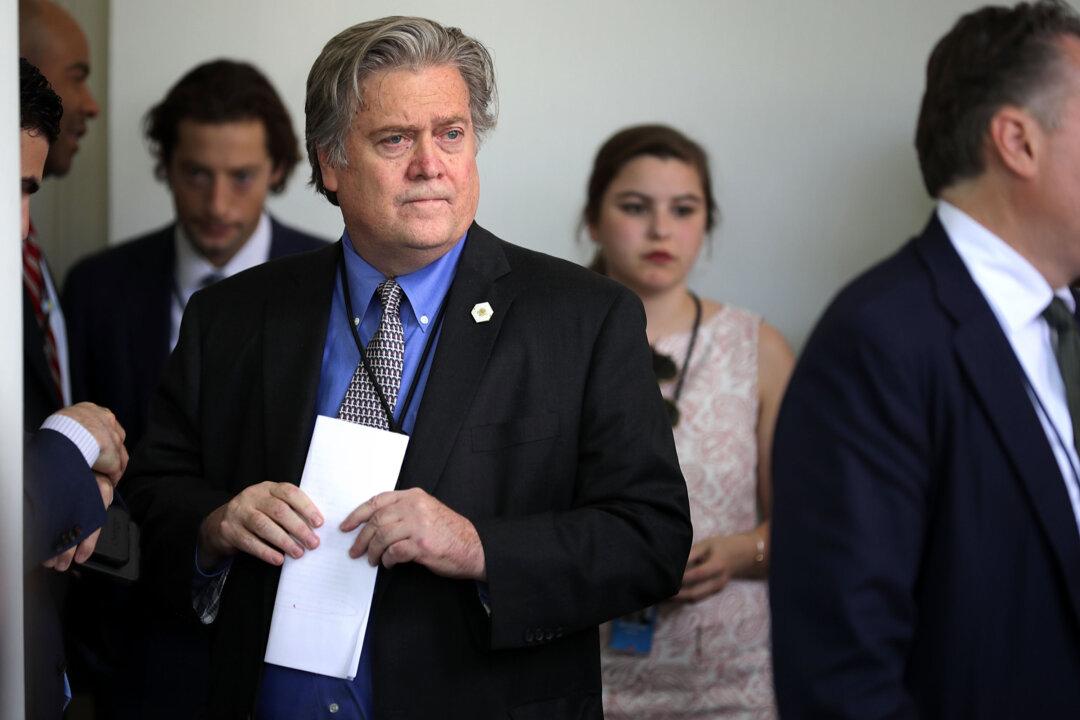Former Trump adviser Steve Bannon has asked a federal judge to delay his trial over contempt of Congress charges by three months due to the Jan. 6 House select committee’s hearings garnering too much publicity, making it unlikely that a jury would be impartial.
Bannon was indicted in November 2021 by a federal grand jury on two counts of contempt of Congress stemming from his failure to comply with a subpoena issued by the House Select Committee investigating the Jan. 6, 2021, breach of the U.S. Capitol.




